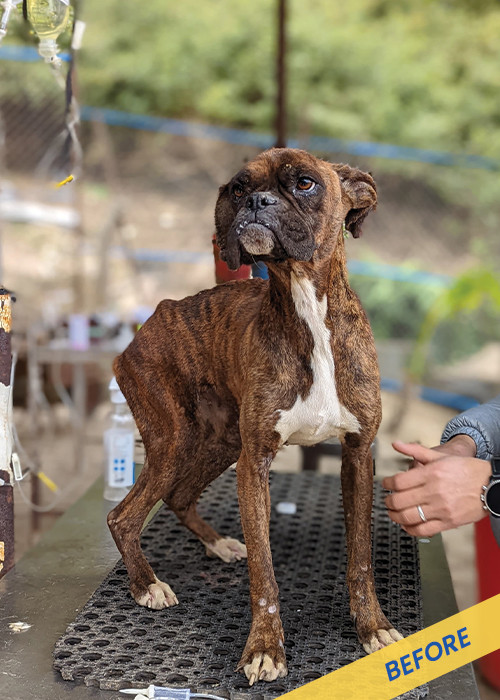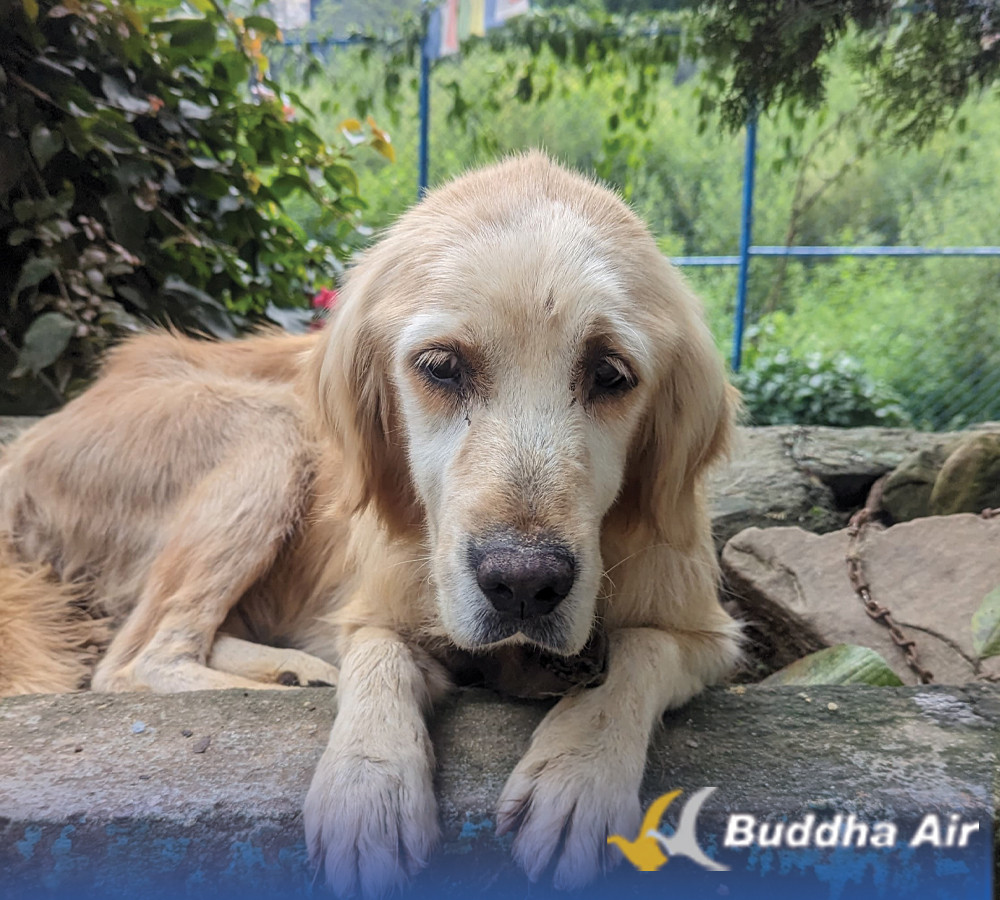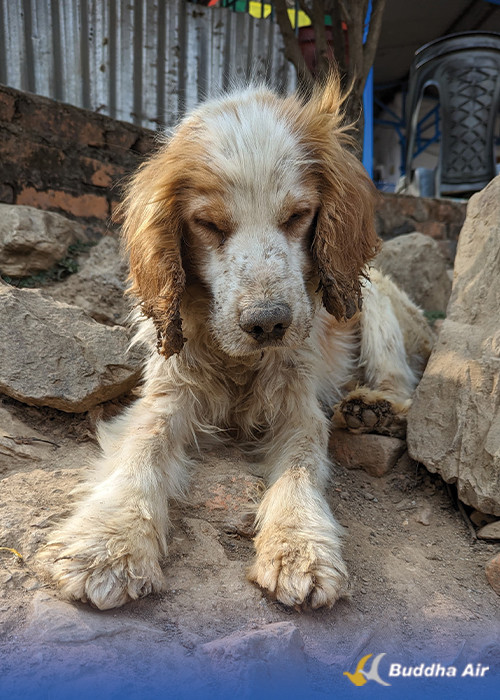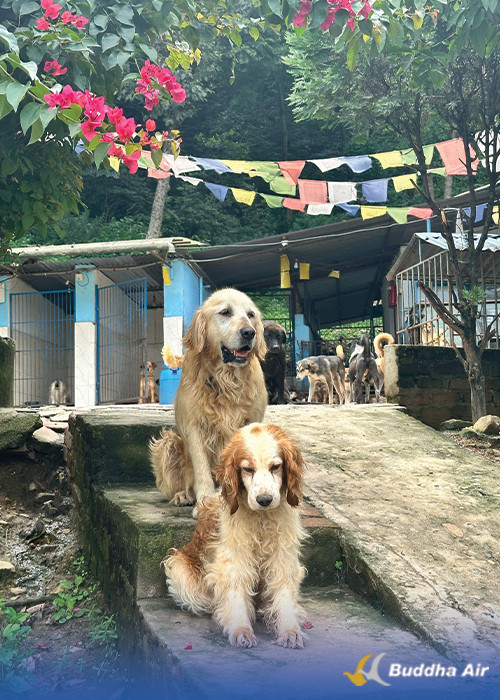
Animal Nepal has been working to improve the lives of animals in Nepal since 2004. Guided by the belief that every animal deserves to live free from pain, suffering, and human cruelty, we dedicate ourselves to helping build a kinder society where animals are valued as friends. Our work spans a wide range of programs, including birth control and rabies prevention, rescue and treatment for street dogs, welfare initiatives for farm and working animals, and advocacy for stronger animal protection. Each effort is rooted in the simple conviction that animals, so often overlooked, deserve care, respect, and kindness.
In recent years, a silent crisis has been unfolding in Nepal. As our cities grow busier and aspirations rise higher, an increasing number of dogs are being left behind. Once considered protectors of the home, playmates for children, and symbols of loyalty, dogs are now too often abandoned and left confused, traumatized and heartbroken.
At Animal Nepal’s Dog Treatment Centre in Chobhar, we witness this heartbreaking reality firsthand. With its forest cover and relative seclusion, Kirtipur has sadly become one of the main dumping grounds for dogs from across the Kathmandu Valley. People bring their unwanted dogs late at night, open a car door, and drive away - leaving behind bewildered dogs who have no idea what they did wrong. They are visibly terrified but naively still waiting for the family that left them behind. Increasingly, we’re also seeing dogs abandoned by breeders once they are no longer profitable. What makes this even more tragic is that pet dogs have almost no survival skills. Unlike street dogs, they do not know how to search for food, water, or shelter. They are often attacked by other dogs, unable to defend themselves, and face a significantly higher risk of being hit by vehicles. Left to their own devices, they are among the most vulnerable animals on the street, stripped of the protection they once had and totally unprepared to cope with the harshness of life outside the home.


Among the many stories of abandonment, one that continues to stay with us is that of Moti, a blind Cocker Spaniel. Moti was found wandering alone in Patan Industrial Estate, left to fend for himself despite his disability. Disoriented, vulnerable, and unable to see the dangers around him, luckily, he was rescued by a kind man and brought to Animal Nepal. For a couple of years, Moti lived at our center where he was cared for, loved, and given the dignity every dog deserves. Then, in what felt like a miracle, he was adopted by a family who saw not his blindness, but his gentle yet broken spirit. They gave him a home filled with warmth, patience, and affection. Though Moti only spent a few final months with them, he passed away surrounded by love, comfort, and belonging. Another story is that of Annie, an abandoned Boxer we found in an emaciated state. She has since been adopted by a monastery in Baudha, where she spends her days surrounded by little monks who care for her and show her the love she deserves. Moti and Annie were among the lucky abandoned dogs who went on to find their happily ever after; sadly, this is not the case for most of them.
 The reasons behind this rise in abandonment are many, but they all point to a deeply troubling shift in values. Migration abroad has become one of the leading causes. As more and more Nepalis leave the country in search of better opportunities, their dogs are often left behind. In some cases, they’re handed over to others - but far too often, they’re simply left in the streets. Whether it’s due to lack of planning, high relocation costs, or the assumption that someone else will take care of them, the result is the same: dogs left to fend for themselves.
The reasons behind this rise in abandonment are many, but they all point to a deeply troubling shift in values. Migration abroad has become one of the leading causes. As more and more Nepalis leave the country in search of better opportunities, their dogs are often left behind. In some cases, they’re handed over to others - but far too often, they’re simply left in the streets. Whether it’s due to lack of planning, high relocation costs, or the assumption that someone else will take care of them, the result is the same: dogs left to fend for themselves.
Even among families who remain in Nepal, the growing popularity of housing colonies and apartments has made it harder to keep dogs. "No Pets Allowed" rules are now a standard clause in many rental and buyer agreements. People who lovingly raised their dogs in open courtyards and communities are being told they can no longer keep them - and many seem to happily move into their new shiny homes without a second thought for the dogs they leave behind.
Another deeply concerning trend is the way dogs are treated as status symbols or disposable playthings. Puppies are often bought on impulse,paraded on social media, or handed out as gifts, with little consideration given to the lifetime of care they require. The novelty wears off quickly. Once the puppy grows, starts barking, chewing, or needs veterinary care, the very qualities that make them dogs become “problems.” What began as excitement turns into neglect, and for far too many, ends in abandonment. Even more troubling is the weight of expectations placed on these animals. Dogs are expected to remain forever cute, perfectly healthy, endlessly obedient, and never inconvenience their families. They are judged against standards so impossibly high that most of us, as humans, could never meet them ourselves. Yet when dogs inevitably fall short of these unrealistic ideals, it is they who pay the price— with their freedom, their safety, and sometimes even their lives.
CLEAR SOLUTIONS
- Encouraging pet-friendly housing through policy and awareness.
- Monitoring and regulating dog breeders to prevent irresponsible practices and abandonment.
- Introducing humane education in schools and communities to nurture empathy.
- Mandatory microchipping to help reunite lost dogs with their families and reduce abandonment.
- And ensuring that families planning to migrate take responsibility for their pets, just as they would for any other family member.
- Nepali culture has always held a special place for animals. From the cows we revere to the elephants we honour, the snakes we worship, and the dogs we celebrate during Kukur Tihar, our culture has long recognized the spiritual and emotional bond we share with animals. That respect is still alive — but now, more than ever, we must reflect it in our daily actions and decisions.
- Dogs are not objects that can be thrown out when inconvenient. They are living beings who feel joy, pain, fear, and love. When we bring them into our homes, we commit to one that must last their entire lives. To break that promise, to abandon them, is not just a betrayal of their trust — it’s a reflection of the kind of society we are becoming and should be a matter of deep shame.
At Animal Nepal, we strive to help as many dogs as possible. However, the truth is that we're constantly working at or above capacity. Every day, we get at least one request asking us to take in someone’s dog — often from people moving abroad, facing rental restrictions, or simply tired of the responsibility. Our team works around the clock, treating the sick, comforting the traumatized, and trying to find homes for the dogs— but organizations like ours cannot carry this burden alone. The expectation that animal welfare organizations will continue to take in every abandoned dog is not only unrealistic but also unsustainable.



And most importantly, it does nothing to address the root of the problem. We cannot rescue our way out of this crisis. What’s needed is a broader, collective effort — one that includes government, communities, landlords, housing developers, educators, and individuals. At Animal Nepal, we believe that no dog should ever be left behind. But we cannot do this alone. We need your voice, your kindness, and your commitment to help build a Nepal where dogs are not forgotten in the rush for development and new opportunities, but cherished as faithful friends who walk beside us. Life will take us through many journeys— moving to a new home, starting a new job, starting a new family, even crossing borders into another country—but these transitions should never mean abandoning the very friends who have walked each step with us. Actual progress is not measured by what we leave behind, but by who we choose to carry forward with us. (The author is associated with Animal Nepal)




